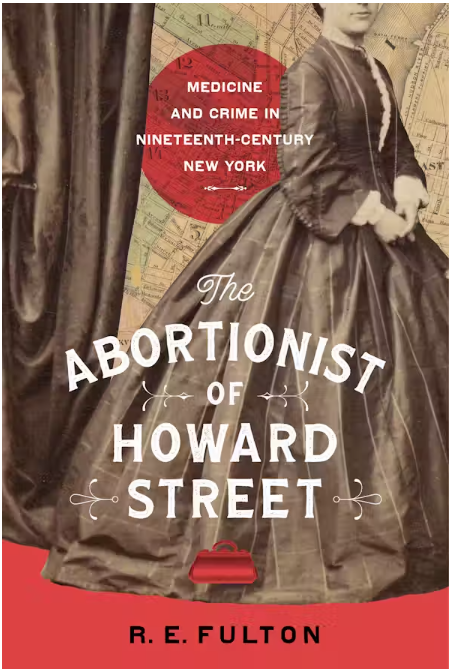In a dynamic discussion with Clarkson students enrolled in a course focused on the history of medicine last week, Clarkson Honors Program alum R.E. Fulton ‘14 delved into the intricate and resonant themes of their latest book The Abortionist of Howard Street (Cornell University Press 2024), which blends the genres of medical history, true crime, and women’s history. The book follows the life of a 19th-century abortion provider in New York who became embroiled in scandal and murder, exploring themes that still carry immense relevance today. Fulton’s conversation with students revealed not only the challenges of researching and writing such a compelling work but also the personal, societal, and political stakes embedded within it.

At the heart of the book is the enigmatic figure of the protagonist, Josephine—a woman whose life intersects with critical legal, social, and medical developments. Fulton, now a professional writer living in New York City, describes Josephine as a reflection of both personal resilience and social limitation. Her experiences span the early struggle for women’s education, battles over child custody, the harsh realities of divorce, and encounters with the medical world at a time when female physicians were rare. Yet the narrative also paints her as a deeply flawed individual, navigating personal breakdowns, intimate betrayals, and a violent encounter with her lover.
“This book offers more than just history—it’s about how abortion became criminalized and how individual lives intersected with those changes in ways that were anything but binary,” said Fulton during the event. “It’s about mental illness, financial abuse, hospital life, and even engineering education. The story isn’t just about one issue but an entire spectrum of experiences, many of which still resonate today.”
Fulton’s work provides a lens to explore how legal definitions around abortion and insanity have shifted, highlighting that 19th-century notions of sanity, morality, and justice were not so different from our own—just framed differently. As one participant noted during the conversation, the story confronts readers with the complexity of human experiences behind what are often portrayed as black-and-white issues. “Abortion is about a million things—relationships, failures, tragedies, medical uncertainty, and rights. And we miss something essential when we reduce it to simplistic debates,” Fulton observed.
A recurring theme throughout the conversation among Clarkson students was the legal system’s evolving treatment of women. Fulton noted that Josephine’s savvy understanding of legal constraints allowed her to navigate a system designed to limit women’s autonomy. The book also examines the limitations of historical records, with Fulton admitting that children’s voices remain absent from many narratives. “The children in Josephine’s story were likely deeply affected by the trauma surrounding them, but their voices are lost to history,” said Fulton. “It’s a reminder that historical research often reveals as much about what we cannot know as what we do.”
In response to audience questions, Fulton reflected on their decision to leave academia to pursue this book independently. “Leaving graduate school gave me the freedom to write without the constraints of academic jargon or gatekeeping,” they said. “It allowed me to craft something that isn’t just for historians but for anyone interested in understanding how personal lives intersect with big cultural changes.”
Stephen Casper, the course’s professor, closed the discussion by emphasizing how the book serves as a mirror for both past and present. “Josephine’s story reminds us that human experiences, especially those related to sexuality, identity, and justice, are rarely simple,” he said. “Fulton’s work not only sheds light on a unique historical figure but also challenges us to confront how these questions remain unresolved today.” Fulton’s book invites readers to think beyond binaries and consider how individual lives are shaped by legal, cultural, and medical systems—both in the past and in the present.